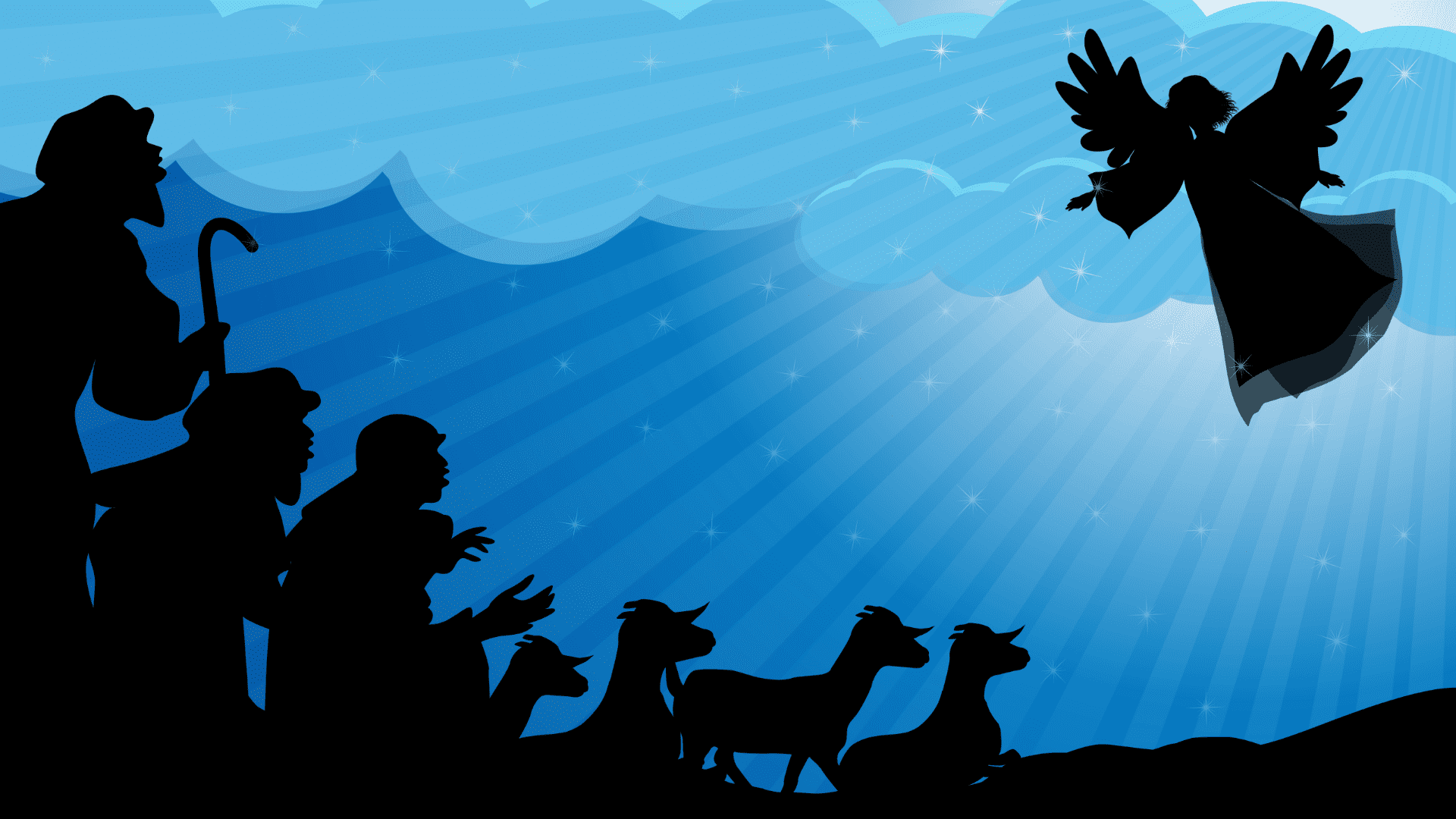Alone in the Hour of Darkness (Luke 22:39-62)

A couple of years ago when my Dad was still alive, I spent a week with him in England. He wasn't doing well – he was suffering with dementia – and while I was there I came down with a case of shingles. It was one of the hardest weeks of my life. Looking back, I wonder why it was so hard. I've had worse things happen and it's been fine. In fact, it wasn't even as hard when my Dad passed away. The reason is because that week I was going through difficulty, and I was going through it alone. It's bad to go through trials; it's almost intolerable to go through trials completely alone.
As we come to the last night of Jesus' life, just hours away from when he would be tortured and killed, that's exactly how we find Jesus. He's going through excruciating anguish, and yet he's completely alone. And yet we're going to see that there's a reason why he's alone. As we look at Luke 22, I'd like two ways that he was abandoned. First, he was abandoned by his friends. But he also faced an abandonment far worse than that.
First, Jesus was abandoned by his friends.
At the beginning of chapter 22 we read:
Then Satan entered Judas, called Iscariot, one of the Twelve. And Judas went to the chief priests and the officers of the temple guard and discussed with them how he might betray Jesus. They were delighted and agreed to give him money. He consented, and watched for an opportunity to hand Jesus over to them when no crowd was present. (Luke 22:3-6)
And then we read what happened when Judas carried out this plan:
While he was still speaking a crowd came up, and the man who was called Judas, one of the Twelve, was leading them. He approached Jesus to kiss him, but Jesus asked him, "Judas, are you betraying the Son of Man with a kiss?" (Luke 22:47-48)
Someone has pointed out that there are two popular views of Judas: traditional and modern. The traditional view is that Judas is seen as one of the most evil people in history. In Dante's Inferno, the lowest level of hell is described as a frozen lake. This is where the worst sinners, including Judas, are being tormented and devoured by Satan. Dante portrays Judas as one of the three worst sinners who ever lived. Traditional views see Judas as the ultimate betrayer.
In the past hundred years, some have taken a more sympathetic, modern view of Judas. The most well-known recent example of this is National Geographic's translation of the so-called Gospel of Judas. The translation shows Jesus and Judas as enlightened beings. Jesus asks Judas to hand him over to the Romans to help Jesus complete the task given to him by God. Judas comes across as the only disciple who gets it. In the movie The Last Temptation of Christ, Judas helps Jesus fulfill his destiny to die on the cross, following Jesus' hidden request. This makes Judas the reason for Jesus' saving work on the cross.
You couldn't come up with two more opposite views. Is Judas one of the most evil people who ever lived, or is he actually a hero? The answer, according to this passage, is neither. The answer is that Judas is just like us, or maybe more accurately, we are just like Judas.
Let me explain. When Jesus had entered Jerusalem on Palm Sunday, everybody knew that things were coming to a head. Finally, Jesus was going to take action and, well, do something. But all week, Jesus didn't do anything out of the ordinary. He taught and prayed and taught some more. Now it was Thursday night, and Jesus still hadn't done anything. Jesus did not take action as the opposition around him grew stronger. Every disciple knew that if Jesus went down, they were going down with him.
If you know the disciples, you know that they weren't prone toward humility. We're going to see in a minute how they normally reacted. They weren't exactly open to humility and self-correction. Yet when Jesus says that one of them is going to betray him, we read in verse 23, "They began to question among themselves which of them it might be who would do this." Why were they uncharacteristically open to examining themselves? Because the thought had occurred to all of them. All the followers were questioning if they should leave, especially as Jesus did nothing for a long time. Every disciple was capable of doing exactly what Judas did, and so are we. We are not so different from Judas.
Does that offend you? It offends me, yet it's true. It's easier to think of Judas as a horrible monster in hell rather than seeing him as someone like us. We all have a little of Judas in us. If we had been there, the thought would have occurred to us as well. I'd much rather see Judas as a monster, rather than see myself as a potential Judas myself. Judas followed Jesus when it was good for him, but he sold Jesus out when it wasn't. But the same thought had occurred to every one of the disciples as well.
Becky Pippert puts it this way:
The biggest surprise of all has been about myself. I have had to face up to what I am sure has been clear to everyone else all along: I am deeply flawed. Mind you, I always knew theoretically that to be human was to be flawed – as in, "Hey, nobody's perfect." But as the years have gone by, I have had to face up to more dramatic, specific, and undeniable evidence that I was my own worst case…
We want to believe that the essential "us" is who we are in our best moments, when everything is going our way, when nothing is thwarting or threatening us. We want to believe that we are what we project to the world: nice, respectable, competent people who have it all together. Fortunately or unfortunately, life doesn't let us get away with our charade. Sooner or later, whether through a difficult relationship with a berating boss, a demanding spouse, a difficult child, or simply through overwhelming or infuriating circumstances, we are confronted with our darker side. (Hope Has Its Reasons)
But Judas wasn't the only one. There was also Peter.
"Simon, Simon, Satan has asked to sift all of you as wheat. But I have prayed for you, Simon, that your faith may not fail. And when you have turned back, strengthen your brothers."
But he replied, "Lord, I am ready to go with you to prison and to death."
Jesus answered, "I tell you, Peter, before the rooster crows today, you will deny three times that you know me." (Luke 22:31-34)
What's fascinating here is that Jesus already knew that Peter was going to fail, and yet he still prayed for him. Jesus prayed that after he had fallen, he would repent, be restored, and that after he had turned back he would be able to strengthen his brothers. This is incredible. Jesus knew that Peter was going to fall, and yet Jesus already saw a bigger purpose behind the fall. He saw that what Peter went through would make him more humble, more dependent on God's grace, and more able to strengthen others and help them understand that our status isn't based on our abilities or our devotion, but on God's grace alone.
One Saturday morning, a crisply dressed man attended an AA meeting in New York City. He complained about his problems: the injustice and betrayals of others. He promised to get revenge on all who had wronged him. He blamed everyone but himself. He was trapped in this cycle of trying to justify himself. While he was speaking, a black man in his forties leaned over and said to his neighbor, "I used to feel that way too, before I achieved low self-esteem."
What's the point of this? It's not that we should go around hating ourselves. It's that we should realize that we're all like Judas and Peter. We have all abandoned Jesus.
There's a new book out called unChristian. It reports what a new generation thinks of Christians, and one of the findings is that people think Christians are judgmental. The perception is that Christians are prideful and quick to find fault in others. The reality is that if we understand who we are, that we are all like Peter and Judas, when we all achieve low self-esteem, there will be absolutely no room for pride and no room to look down on others, because we can't take any credit. Rick McKinley says, "I'm perplexed at how anyone can hear the story of Jesus dying in our place and rescuing us out of our helplessness and have it produce arrogance in their life." We should be the most humble people around when we really understand we're just like Judas, and just like Peter.
As bad as it was to be abandoned by his friends, Jesus faced a far more serious abandonment that night.
Second, Jesus was seemingly abandoned by God.
When Jesus prays on the Mount of Olives, we see a Jesus who has never appeared before in any of the gospels. Up until now he's been fearless. All of a sudden we see Jesus deeply distressed and in anguish.
There have been many people who have faced death with more courage than what we see in Jesus in this passage. The Maccabean martyrs were famous for their spiritual courage, even when facing death. They spoke confidently of their trust in God even as their limbs were cut off. When Socrates was found guilty of corrupting the minds of youth, he was sentenced to death by drinking a mixture of poison hemlock. He had the option to flee, but he wanted to face death the same way that he lived life. Believing that the time had come for him to die, he faced his death with courage. Christian martyrs have also done the same. When Polycarp, an early Christian martyr, faced death, they were going to nail him to the stake, but he said, "Leave me as I am; for He that has granted me to endure the fire will grant me also to remain at the pile unmoved, even without the security which you seek from the nails." And as he was burned, he prayed a prayer of thanks to God for being allowed to die a martyr.
But Jesus in the garden has none of that courage. We read in verse 43 that he's in anguish. He's in agony. Luke, who is a doctor, describes what seems to be a medical condition called hematidrosis, a very rare condition in which a human being sweats blood, sometimes when a person is suffering extreme levels of stress. Jesus is in agony, and asks his Father if there isn't a way out of death.
Why is this? Why is Jesus more overwhelmed with his death than others have been – even more than his own followers?
The reason is that Jesus was facing something that nobody else in history has ever faced. From eternity, he had enjoyed perfect communion with the Father, a relationship of absolute intimacy and love. But at the cross Jesus was for the first time cut off from his Father. At the cross Jesus would take on our sin and bear the wrath of God. In the Garden of Gethsemane, he experienced a bit of that, and it put him into shock.
New Testament scholar Bill Lane writes, "Jesus came to be with the Father for an interlude before his betrayal, but found hell rather than heaven opened before him, and he staggered."
Centuries ago Jonathan Edwards said:
The thing that Christ's mind was so full of at that time was…the dread which his feeble human nature had of that dreadful cup, which was vastly more terrible than Nebuchadnezzar's fiery furnace. He had then a near view of that furnace of wrath, into which he was to be cast; he was brought to the mouth of the furnace that he might look into it, and stand and view its raging flames, and see the glowings of its heat, that he might know where he was going and what he was about to suffer. This was the thing that filled his soul with sorrow and darkness, this terrible sight as it were overwhelmed him…None of God's children ever had such a cup set before them, as this first being of every creature had.
In the Garden, Jesus had a foretaste of what it would be like to be abandoned by God, the relationship that was infinitely more intimate and valuable than any relationship we could lose. If Jesus hadn't been abandoned by God like this, we would have to be. It was either him or us.
In the dark, when nobody else was looking, when he had experienced not only the cup of our abandonment of him, and had begun also to experience the cup of God's abandonment of him, he went ahead anyway.
But here's the most important thing you need to hear this morning. Jesus was also abandoned so that your life could be saved. He was abandoned so that you wouldn't have to be.
When we see all of this, we will be the most humble people, because we know we didn't deserve what he has done for us. We will be the most loving and respectful of other people, because we understand what it is to be loved by him. We will be the most forgiving, because we understand how much we've been forgiven. We will be able to endure suffering, because we know how much Jesus suffered for us. And we will know what it is to be truly loved, loved so much that Jesus would go through all of that when we were at our worst. When we see what Jesus suffered for us, we'll really be able to sing:
Were the whole realm of nature mine,
That were a present far too small;
Love so amazing, so divine,
Demands my soul, my life, my all.





